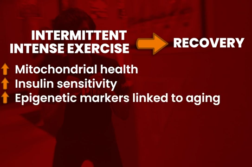MIAMI, Fla. (Ivanhoe Newswire)— About one in three adults with dementia continue to be active drivers and 50 percent of them continue driving for up to three years after their diagnosis. But now a new trial is under way to see whether cognitive changes that may lead to dementia down the road could be detected through driving—-years earlier.
Norman and Joyce Dohm like to travel the old fashioned way.
“He doesn’t like to fly. We just like to see the USA by wheels,” shared Joyce.
But this year, Norman will be 80 and he knows he has a greater risk for mild cognitive impairment which can affect his driving.
“When you drive, you have to take into account dozens, if not hundreds of different things happening at once. And that’s hard when your brain isn’t working as well as it used to,” said Ruth Tappen, EdD, RN, FAAN, professor, Florida Atlantic University.
Especially for drivers with dementia. They may have difficulty changing lanes, making left turns, merging, following routes, or even driving at night. But researchers believe that cognitive changes seen during driving may give early insight to dementia before noticeable symptoms can be seen.
“I think of it as a brand- new early warning system,” continued Tappen.
They are partnering with engineers to develop and test an in-vehicle sensing system equipped with on board diagnostics, GPS, and cameras.
“Driver facing video can have AI that can detect dodginess, distractions, and it can also track eye movement,” explained Jinwoo Jang, PhD, Assistant Professor, Florida Atlantic University.
Their goal is to see which driving changes indicate cognitive decline. Norman is taking part in the trial with the in-vehicle sensing system. Even though Norman and his wife feel he is a safe driver now, any changes detected by the system can give them an early warning so Norman can hit the brakes.
“I want to be safe to drive so nobody else will be endangered because of me,” shared Norman.
The trial will follow drivers for three years. Participants in the trial need to be 65 or older with no cognitive impairment, have a driver’s license, a car and car insurance.
Contributors to this news report include: Milvionne Chery, Producer; Roque Correa, Videographer and Editor.
To receive a free weekly e-mail on medical breakthroughs from Ivanhoe, sign up at: http://www.ivanhoe.com/ftk
Source:
MEDICAL BREAKTHROUGHS
RESEARCH SUMMARY
TOPIC: DRIVING WITH DEMENTIA: CATCHING EARLY BRAIN CHANGES
REPORT: MB #4922
BACKGROUND: Dementia is a general term for the impaired ability to remember, think, or make decisions that interfere with doing everyday activities. Alzheimer’s is the most common form of dementia, and even though dementia mostly affects older adults it is not a part of normal aging. Many older adults live their entire lives without developing dementia. Normal aging may include weakening muscles and bones, stiffening of arteries and vessels, and some age-related memory changes. These changes can be misplacing car keys, struggling to find a word, forgetting the name of someone, or forgetting the most recent events. There are currently over 50 million people worldwide living with dementia. This number will almost double every 20 years, reaching 82 million in 2030 and 152 million in 2050.
(Source: https://www.cdc.gov/aging/dementia/index.html and https://www.alzint.org/about/dementia-facts-figures/dementia-statistics/)
DEMENTIA AND DRIVING: Research shows one in three people with dementia still drives, but whether the person can still drive safely is the question as dementia can affect their ability to do so. Driving is a complex task that involves quick thinking as well as sensory (vision, hearing) and manual skills. As dementia worsens, it can affect these skills even more which means everyone with dementia will eventually be unable to drive safely. It varies from person to person as to how quickly this may happen. Most drivers with Alzheimer’s will need to stop driving in the middle stage of dementia. Some types of dementia have certain early symptoms that mean an end to driving sooner. For example, visual hallucinations are common in dementia with Lewy bodies and impulsive behavior is common in frontotemporal dementia.
(Source: https://www.alzheimers.org.uk/get-support/staying-independent/driving-dementia)
GENETIC DISCOVERIES FOR ALZHEIMER’S: Selina Wray, MD, an Alzheimer’s research UK-funded scientist from University College London, and researchers from the UK Dementia Research Institute have shed new light on how genetic mutations cause familial Alzheimer’s disease (FAD). People affected by FAD usually start to experience symptoms before the age of 65, but for some it is as young as 30. Selina and her team investigated the effect of genetic mutations on the production of amyloid, a protein that builds up in the brain in the disease. Her findings indicate that different mutations in the genes have different affects. While they all lead to a build-up of amyloid protein, she found that there are potentially four distinct mechanisms that can play a role in the disease. The differences Selina identified could guide the development of drugs that are targeted to patients depending on which mechanism is at play in their brain.
FOR MORE INFORMATION ON THIS REPORT, PLEASE CONTACT:
GISELE GALOUSTIAN
If this story or any other Ivanhoe story has impacted your life or prompted you or someone you know to seek or change treatments, please let us know by contacting Marjorie Bekaert Thomas at mthomas@ivanhoe.com




